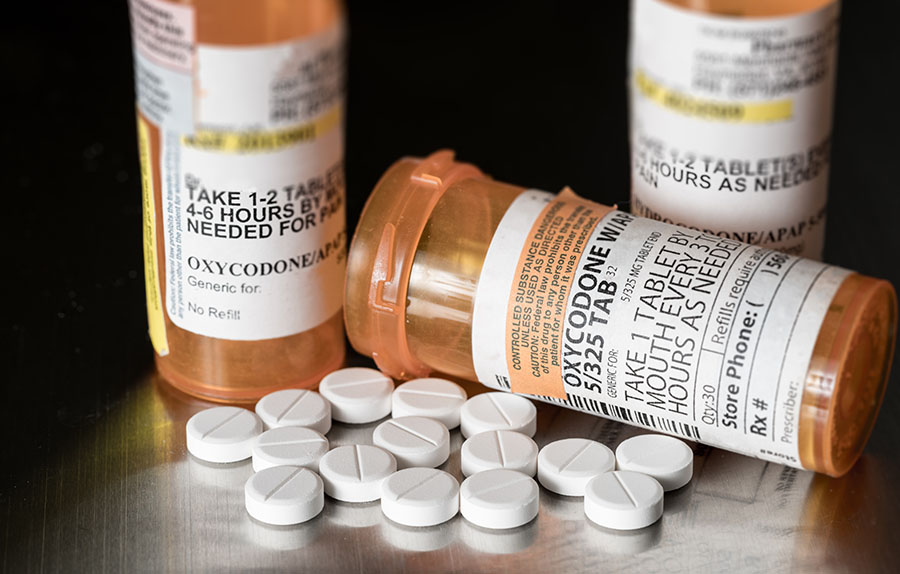Addiction is a complex and incredibly difficult topic to understand. For the family of an addict, it can seem like there’s no clear answer as to why they started using in the first place.
It’s understandable that you want answers. That way, you can better support your loved one through their addiction and come to terms with what’s happening.
Unfortunately, not all substances are created equal. The reality is, there are specific addictive substances out there that at least appear to have a higher likelihood of causing addiction in individuals.
In this article, we’ll be exploring some of the most addictive substances available. We will explore why people become hooked on these drugs and discuss potential treatments and resources that can aid individuals in their journey to recovery.
The Most Addictive Substances
Can You Rank the Most Addictive Substances?
Building a list of the most addictive substances is more complex than it may sound at first.
We know that the potential for a person to develop substance use disorder is influenced by many factors. The National Institute on Drug Abuse explains that biological, environmental, and developmental influences can increase the possibility of addiction.
Similarly, substances do not affect all people in exactly the same way. Normal differences in our biology may impact addiction. Some people may feel stronger or weaker effects from the same dose of a substance.
Research published in the Psychology and Behavioral Science International Journal highlights potential issues in ranking addictiveness. This research compared nicotine, opioids, and alcohol. It also makes an important point about comparing substances:
“From the research, it was difficult, to sum up these measures and come up with a standard answer as to which drug between heroin (opioids), nicotine, and alcohol is more addictive than the other.”
However, other research has focused on comparing the harm caused by different substances. An article published in The Lancet asked psychiatrists and other addiction experts to rank the addictiveness of certain substances as part of this harm-focused research.
Especially Addictive Substances
We won’t rank the following substances. Why? Because there isn’t a universally accepted scale to rank them.
However, based on our own experience and expertise in treating addiction as well as research results, these substances are especially addictive.
Opioids
Opioids are natural and man-made chemicals. They either come from or are based on chemicals found in a specific type of poppy plant, the opium poppy. Opioids are both a prescribed medication used to manage severe pain and a drug with high abuse potential.
People may abuse opioids bought illegally, like heroin. They may also purchase legally prescribed drugs that are then sold on the black market. Some people also misuse medication prescribed to themselves.
These substances block pain signals to the brain and produce a sense of euphoria, Johns Hopkins Medicine explains. They can also relieve feelings of anxiety and depression. Opioids also ranked the highest for psychological and physical dependence in The Lancet article’s survey.
These factors make opioids especially addictive.
Cocaine
Cocaine is a drug made by processing the leaves of the coca plant. Cocaine itself is a stimulant. It causes a sense of euphoria, increased alertness, and other effects.
Crack cocaine is a further processed form of cocaine that has shorter and more intense effects. Both are illegal recreationally, although cocaine is used in a few specific medical applications, Healthline explains.
Both types of cocaine wear off relatively quickly. That fact can encourage users to continue to consume it when available. And that behavior can quickly build tolerance and dependence, both of which are key factors in addiction.
Alcohol
All alcohol is made through the fermentation of fruits, grains, and other foods or ingredients that contain sugar. Liquor is the most concentrated type of alcohol, using distillation to increase potency.
Alcohol is a depressant drug. Yet, it can cause an elevated mood and temporarily reduce anxiety (although also worsens it in the long term), among other effects. It has a variety of negative short- and long-term health effects as well.
Alcohol has addictive potential by itself. It’s also legal for recreational use, unlike many other drugs. Ease of access to alcohol helps to make it especially addictive.
Nicotine
Nicotine comes from tobacco plants. It is found in cigarettes, smokeless tobacco, nicotine vapes, and other products. It can help to reduce anxiety and stress in the short term.
This is a relatively mild drug in terms of effects, compared to others on this list. It does not generally impair or influence people to the same degree.
However, nicotine is still highly addictive. Use can quickly lead to dependence. It’s also legal for recreational use, making it very easy to access.
Importantly, many products used to deliver nicotine have serious, long-term health effects, the FDA explains.
Methamphetamine
Amphetamines are stimulant drugs that have both clear medical benefits and a high potential for abuse. It’s commonly prescribed to help treat Attention Deficit Disorder and related issues.
These drugs can boost alertness and overall performance. They can provide a sense of euphoria and increase motivation. However, they also can quickly lead to dependency.
Methamphetamine can also be manufactured for illicit use. This form of methamphetamine has several issues related to its illegal manufacturing, like contamination with toxic substances. That’s in addition to the negative health effects of methamphetamine itself and its addictive potential.
Benzodiazepines
Benzodiazepine has recognized medical value for treating certain disorders related to anxiety. It’s also a highly addictive substance, in part because its effects include a sense of relaxation and sedation.
Benzodiazepine drugs ranked highly in The Lancet article’s expert poll in terms of physical and psychological dependence. In medicine, physicians limit their use to the short term because they have a high recognized potential for abuse.
The Science of Addiction
The American Society of Addiction Medicine shares this definition of addiction:
“Addiction is a treatable, chronic medical disease involving complex interactions among brain circuits, genetics, the environment, and an individual’s life experiences. People with addiction use substances or engage in behaviors that become compulsive and often continue despite harmful consequences.”
There is no single risk factor related to or trigger for addiction. Instead, many potential factors contribute to it. That includes everything from the environment someone was raised in to mental health concerns.
How Does Addiction Cause Changes in the Brain?
The National Institutes of Health (NIH) explains that addiction alters, or hijacks, key processes in the brain that are normally intended to promote survival:
“A healthy brain rewards healthy behaviors—like exercising, eating, or bonding with loved ones,” the NIH says. “It does this by switching on brain circuits that make you feel wonderful, which then motivates you to repeat those behaviors.”
Addiction can take over these processes, making people want more and more of a dangerous substance. Disrupting the normal reward pathways in the brain makes it extremely difficult to stop using a substance. That’s why so many people with addiction issues have trouble stopping use, even when they can recognize the current and potential problems involved.
Addiction is caused in part by the increasing dependence that comes with regular use. In other words, regular use causes the body to adapt to the presence of a substance. People will use more of the substance to get the same feeling, building more chemical (or psychological) dependence.
Increased dependence can also lead to a fear of withdrawal, which is a symptom of physical dependence. Withdrawal symptoms for many substances, including all of those listed in the previous section, can be especially difficult to deal with. For that reason, people with addiction issues will use these substances to feel “normal,” as opposed to feeling a high.
Is Addiction a Disease? Supporting a Loved One With Addiction
We’ve largely focused on science and facts related to addictive substances so far in this article. However, we need to recognize the appropriate (and compassionate) approach to dealing with addiction as well.
We’ll cover the specifics in more detail in the next section. For now, we want to be totally clear.
Addiction is a disease, as the University of Michigan points out. It’s not related to a moral failing or a lack of mental strength. If you want to help a loved one address their addiction, you need to view it as a mental health concern and not a choice.
That doesn’t mean you can’t set healthy boundaries or reasonable expectations for your loved one. That’s especially true if you want to support the person themselves, but not their addiction issues. You can and should have boundaries related to what is and isn’t acceptable.
At the same time, you shouldn’t regularly bring up their past issues in a negative light or confront them out of anger. A supportive approach from family can make accepting the need for addiction treatment easier.
Being there for a loved one with addiction issues while protecting yourself from the damage they can cause is the best way forward. Along the way, be sure to learn more about what addiction is and how it can affect people.
Infinite Recovery offers a monthly family workshop that focuses on learning. We also help family members with weekly online support groups.
Overcoming Addiction
At this point, we know addiction is a complex disease. It causes changes in the way the brain works, making it especially hard for someone with this issue to overcome on their own.
The good news is that treatment for addiction is available. There are many strategies and approaches for treating addiction. At Infinite Recovery, we take a holistic, compassionate, and evidence-based approach to support all aspects of a person as they work to treat their addiction issues.
That includes:
- Helping loved ones stage interventions. We provide phone consultations and can help you find a local intervention professional.
- Offering detox services. Medically supervised detox is crucial for safely ending substance use in the short term, avoiding serious health complications. It also plays a key role in beginning to identify foundational issues that can be more fully addressed later on in the recovery process.
- Providing inpatient treatment. Inpatient treatment offers supervised care in a consistent and safe environment. It includes therapy, counseling, medication management, activities, and more, setting the stage for long-term recovery.
- Offering outpatient, partial hospitalization, and sober living services. These offerings continue to build on the foundation developed during detox and inpatient treatment. They include many of the same inpatient services while helping clients transition back to their everyday lives.
- Continuing support with alumni services. Many of our alumni attend regular events and meetings for the sense of community and sober lifestyle support. We also connect alumni with resources like employment, education, and volunteer opportunities.
Therapy is a vital form of support in recovery from addiction and the use of addictive substances. Treating chemical dependency issues alone is often not enough to address root causes and concerns. Therapy can offer a more sustainable path to recovery by taking a more complete approach to addressing addiction and its causes.
We offer a wide range of therapy types to help address the many potential issues that lead to addiction. Our broad-based approach combines with individualized treatment plans to deliver effective therapy options to each and every client.
Addiction Treatment: Help is Available
The most addictive substances can have dangerous short- and long-term effects. That’s true for the people with addiction issues themselves and their loved ones.
Remember that proven treatments for addiction exist. Help from experienced professionals in a supportive and controlled environment is available. Neither a person dealing with addiction nor their families should be expected to make changes on their own.
Infinite Recovery is dedicated to providing comprehensive and compassionate support in addiction treatment. By going beyond chemical dependency issues themselves, we offer well-rounded treatment that helps clients address many of the root causes of addiction.
Ready to transform your life or help a loved one? Reach out to us today.





